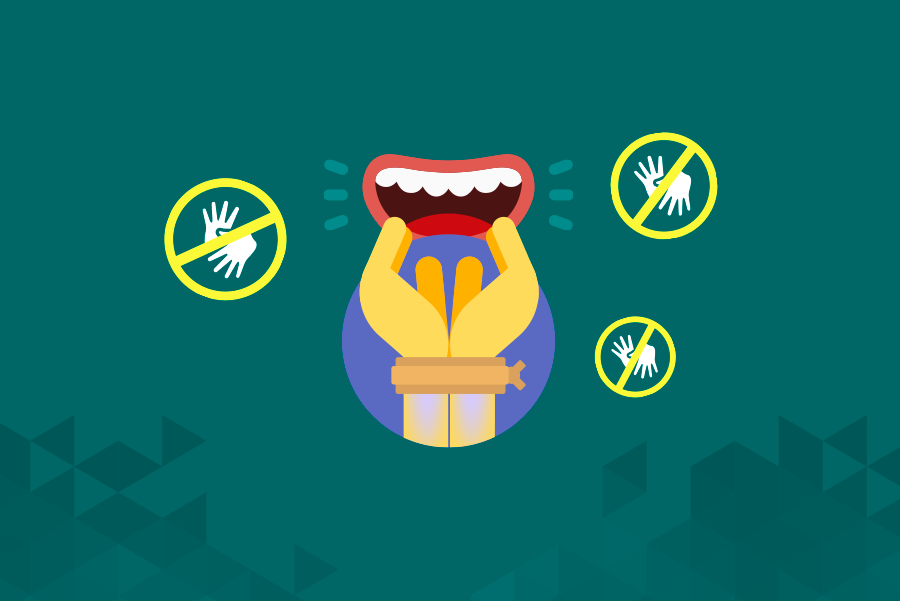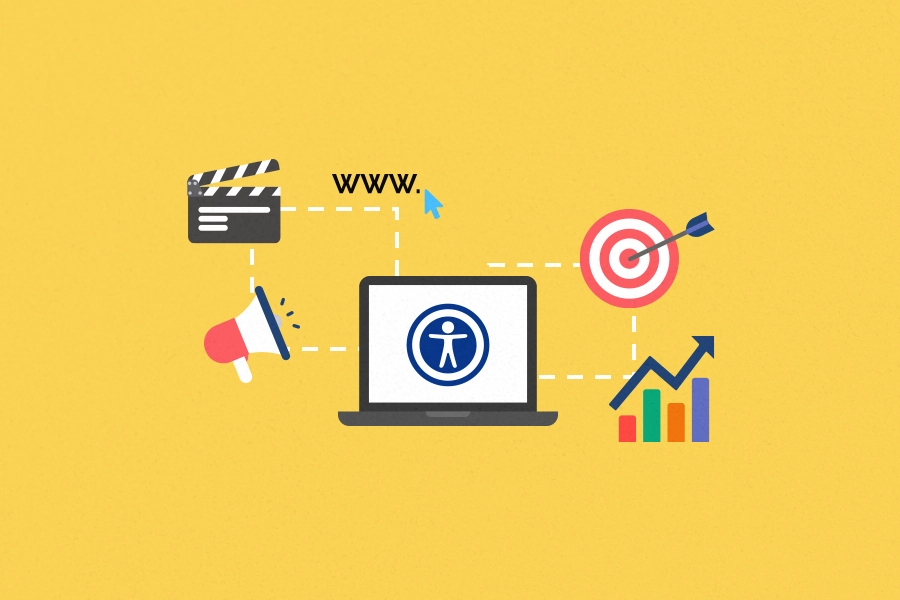
Audism and the discrimination against deaf people

Unfortunately, discrimination is still a concept very present in our daily lives. It exists in many ways, oppressing and offending different groups, such as women, black people, members of the LGBTQIAPN+ community, people with disabilities and so on. Today, we will explain to you a bit more about the discrimination against deaf people, also known as audism.
Before we move forward, if you want to learn more about the deaf community, we brought you 3 things deaf people want you to know, to start rethinking some prejudices you might not even know you had.
After all, what is audism?
To understand the notion of audism, we need to assume that the world was built by and for hearing people. In this scenario, it’s like deaf people and those with hearing disabilities aren’t considered on their identities, how they see themselves inside the community, but perceived as “non-hearing”. It’s as if they were wrong or inferior for not hearing. Audism understands the world from the perspective of a hearing person, and how they face the situations and environments around them. According to this logic, the deaf person is the element that’s out of place, outside the socially accepted norm. This way, they need to have potential hearing at all costs, going through the process of oralization, learning how to lip read and adjusting to oral communication.
Being a hearing person became a synonym of being normal. This pattern we have in society today, results in many people with hearing disabilities being denied of perceiving and affirming themselves as part of the deaf community. This sociocultural construct creates a very hard environment of exclusion, rejection and invisibility for deaf people. On top of it, audism deprives them of their language, which is a huge part of their identity and culture.
Understanding the hearing privilege
Did you know that Sign Languages, mostly used by the deaf community to communicate, were forbidden in 1880? This is just an example of the many linguistic deprivations that deaf people suffer daily. When you think about it, it’s clear that hearing people will enjoy more privileges, since they don’t have so many barriers to face all the time.
A good example for you to understand how these privileges actually work, is cripface. This term originated in the United States, joining the words crippled and face. It’s very present in the audiovisual and entertainment industry, when non-disabled people interpret characters with disabilities. This is a big problem, because it ends up portraying people from this community in an offensive and ableist manner. Besides, not hiring actors with disabilities for these productions is an ableist act in itself, because it’s based on the idea that they aren’t capable of handling this kind of work.
There are countless times when hearing people wrongly occupy deaf people’s spaces, mainly in the workplace. In places in which job offers already aren’t frequent, they are still harmed in favor of the hearing privilege. One of the most common cases happens with job opportunities for interpreters and ASL (American Sign Language) teachers. Organizations prefer to hire hearing people, because they believe they will be able to communicate better with the rest of the audience, also hearing. They do that instead of choosing deaf people, who many times have their culture and identity based on ASL.
Recently, the expression deaf money came to light, but what does it mean? Just like it happens with so many other groups, companies take advantage of deaf people to profit from them, without truly worrying about the causes this community defends. It’s very common, for example, for us to find ASL courses offered by hearing people, with the promise of fluency in the language in record time, and still charging abusive prices. The people behind this type of actions just use deaf people as a strategy to gain money and fame, without being involved with the community, or even supporting it. Because of all of this, the motto “Nothing about us, without us” was created, advocating for the presence of deaf people and those with other disabilities in the spaces that belong to them. If we’re dealing with something about them, why exclude them?
The situations in which we can observe the hearing privilege are very often. Also, the communication difficulties for deaf people become practically inevitable in a world that only accepts being a hearing person. It happens when a deaf person, who communicates mainly in ASL, needs to go to the hospital, the police station, to a store, to school, or even bus stations and airports, where usually there are only sound announcements. Do you realize how the hearing privilege can take away the freedom and autonomy of those that are part of the deaf community?
The linguistic discrimination suffered by deaf people
Well, the idea of discrimination you already know, but can you tell what linguistic discrimination consists of? Basically, it’s a way of social dicrimination based on judging people on the way they communicate. This can happen when the other person uses terms you think are wrong or improper, when they don’t have mastered the language they’re speaking, or simply when they communicate in a different language than yours.
This is a phenomenon that happens a lot with signed deaf people, who in the United States, speak mostly ASL. Since they don’t dominate the English language, they’re seen as inferior, incomplete, incompetent, stupid, and so many other negative notions that are born with this prejudice.
Also, deaf people, and people with other disabilities, suffer from linguistic ableism. This happens when people use ableist sayings and terms that work almost as slang. These expressions gain popularity within society, even if sometimes people don’t understand well the meaning behind those words, and use them without much awareness.
Am I being ableist when I talk?
This type of ableist language encourages an exclusion cultura that only grows stronger. Once again, we can notice the reflections of the audism culture in which we live, inferiorizing deaf people. To ensure we don’t keep repeating these prejudiced terms, we brought you some ableist expressions that you shouldn’t use ever again:
- Fall on deaf ears: when someone hears something, and chooses to ignore it or doesn’t pay much attention to it, people say they “fell on deaf ears”. This only shows the discrimination against deaf people, that have their disability associated to intentional ignorance, or missing out on information.
- I thought you were normal, you don’t look deaf: as we said above, hearing people become a synonym for normality. Therefore, in this logic, deaf people are abnormal and wrong. Besides, there isn’t anything such as “looking deaf”. This is just a prejudiced stereotype placed upon them.
- Tone deaf: usually, this expression is used when people don’t read the room well, or when an action is inappropriate for the situation. It reinforces the idea that deaf people are ignorant or unaware of what’s happening around them, which isn’t true.
- You don’t seem deaf, you can even talk: again, this is a reproduction of a wrong notion of deafness. Most people with hearing disabilities are able to speak, but most times don’t do so, because they prefer to communicate in Sign Languages. That being said, the term deaf-mute, or calling a deaf person mute, is also wrong.
Audism seems to be everywhere, but now that you understand more about this subject, it’s your job to act against these discriminations against the deaf community. A great first step is to start learning ASL, working for the inclusion of deaf people in our day to day. You can do this right now, with the Hand Talk App, a free automatic Sign Language translator app.
If you want to dive more into the subject of audism and linguistic discrimination, we leave here some recommendations of deaf researchers to help you, such as Gladis Perlin, Karin Strobel and Shirley Vilhalva 😉


